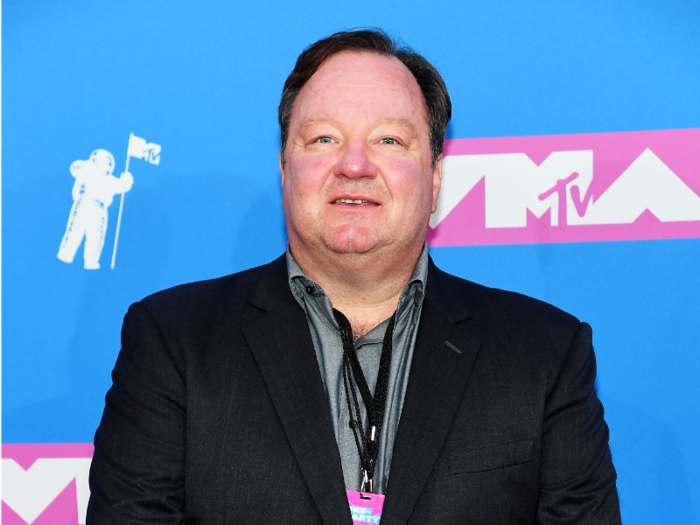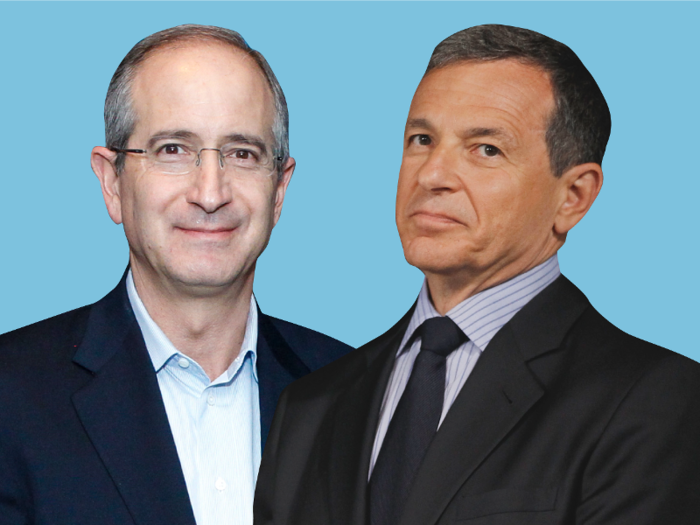- Home
- slideshows
- miscellaneous
- Top M&A predictions for telco and media in 2019
Top M&A predictions for telco and media in 2019
Digital native companies

CBS-Viacom and other entertainment assets

In entertainment, the focus is on a merger of CBS and Viacom.
After Les Moonves, chairman and CEO of CBS, resigned following allegations he sexually harassed and assaulted women throughout his career at the company, experts have speculated a CBS-Viacom merger would occur in the coming year.
"You need to be larger player in this environment," said Jim McVeigh, founder and CEO of CyndX and a veteran investment banker who advised on deals for AT&T, Comcast, and Time Warner. "And smaller players, even Discovery, are probably going to need to find a home. By being out there on their own, they are putting themselves at a strategic disadvantage."
A Viacom-CBS deal is a natural fit because CBS has football rights that would serve Viacom well, said Mary Ann Halford, a former Fox International executive vice president who is now a senior adviser at the strategy consulting firm OC&C Strategy Consultants.
Other sale targets in 2019 could be Lionsgate and Univision, both of which need scale to compete, Halford said. Lionsgate vice chairman Michael Burns acknowledged it would be willing to sell, and The Wall Street Journal has reported that Univision is exploring a sale.
Snap

Snap needs a bail out. It's strapped for cash and might need to raise capital by 2019, according to a MoffettNathanson report. It's also facing stiff competition from Facebook. All this points to a possible sale.
"We would expect Snap to be acquired before it goes bust, possibly by Netflix," Alex DeGroote, an independent media analyst, told Business Insider. Both are video companies that don't compete on product. And with $120 billion in market cap, Netflix could afford it.
Scott Galloway, marketing professor at New York University, named Google or Amazon as the likely buyer. He gave the slight upper hand to Amazon, given Amazon recently launched a commerce-focused partnership with Snap and Google's failed attempts at social media.
But Todd Klein, partner at VC firm Revolution, said he thought the possibility of a Snap sale has waned as the company has lost its luster. "They have not really consistently come up with an answer to Instagram," he said.
TV broadcasters

2018 was an active one for TV broadcasting. Nexstar Media offered $4.1 billion for Tribune and the deal is expected to close in 2019. Sinclair Broadcast Group offered $3.9 billion for Tribune Media, though the deal collapsed due to regulatory issues.
Mary Ann Halford, a former Fox International evp and now senior adviser at the strategy consulting firm OC&C Strategy Consultants, sees more broadcasters combining to gain leverage in a fast-changing TV environment.
Broadcasters negotiate retransmission fees from TV providers. Getting bigger would help broadcasters negotiate with cable providers for higher fees, which make up an increasing percentage of their revenues. With greater size and capital, broadcasters could take a harder line with cable providers in the face of channel blackouts.
Cox Media, a group of 14 broadcast stations, announced it is considering sale to a larger TV company in July. Halford said she could see Cox merge with another broadcaster, like Tegna, to increase its leverage with cable companies.
Charter

Charter Communications, the second-largest cable company behind Comcast, is the only cable company that has said it's looking to acquire more cable assets. Like the rest of the pay-TV industry, Charter saw declines in their video subscribers in the third quarter.
Analyst Rich Greenfield has called Charter's video product "awful" compared to the competition. So perhaps the company realizes its strength lies in its broadband assets and wants to expand in that area.
Charter will have to wait until the right assets become available, though.
"These [deals] tend to be episodic," Klein said. "They occur specifically because some need arises, whether there's a founder transition or some firm is at the end of its life and they need to sell."
Hulu

The streaming service with more than 20 million subscribers is 60% owned by Disney, 30% by Comcast, and 10% by AT&T. Experts are divided over what Comcast will do with its stake, which some analysts say is worth $3 billion.
Alex DeGroote expects Comcast to sell it off. "Hulu is loss making and Comcast cannot compete with Netflix in terms of programming budgets in the US streaming market," he told Business Insider in September. "Comcast has placed its chips on Sky and European expansion and it cannot realistically develop Hulu as well, which is relatively immature."
But Klein argued Comcast will hold on to the stake since Comcast doesn't need access to the money and Hulu still brings value. The Hulu ownership gives Comcast visibility into how its shows perform on the platform, valuable feedback for a content producer.
Popular Right Now
Advertisement